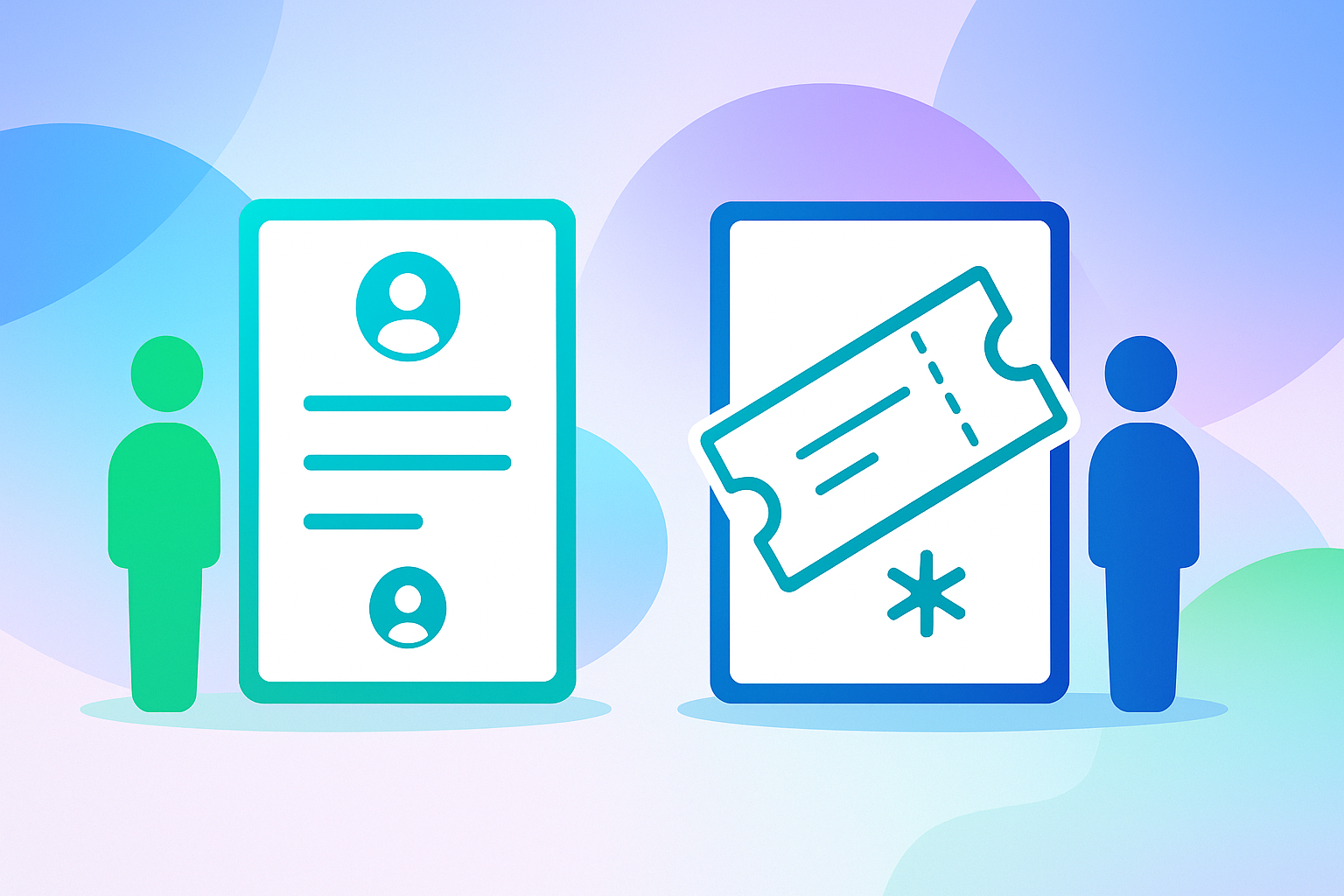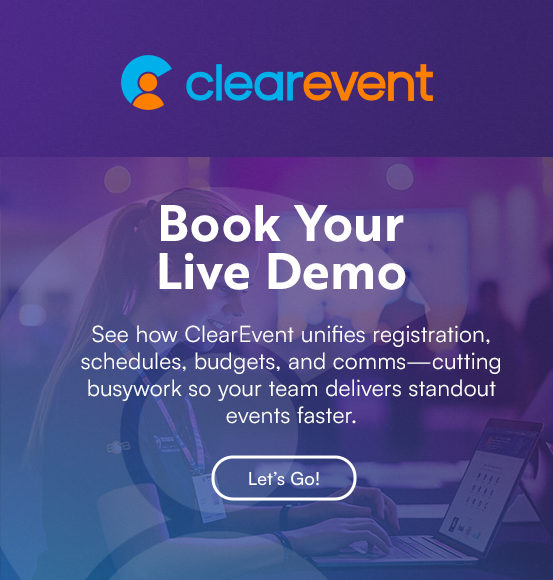Tickets vs. Registration (Part 1): What’s the Difference?

Series: Part 1 of 3 — Part 2 → • Part 3 →
Deciding between tickets and registration can be confusing because they share similarities but they’re built for different purposes. This post clarifies the difference so you can pick the right approach with confidence.
The basics
An online ticketing system helps you:
- Create and publish event ticket types (e.g., General, VIP, Multi-day)
- Sell online and accept payments
- Capture buyer and (optionally) ticket-holder details
- Issue tickets and receipts automatically
- Deposit funds to your account
- Report on sales and check-ins
An online registration system helps you:
- Create and publish event registration forms
- Accept registrations (free or paid)
- Collect richer information from each registrant
- Send confirmations and receipts
- Deposit funds to your account
- Report on registrants and statuses
They sound similar until you look at personalization.
The deciding factor: personalization
The more personalized the attendee experience, the more likely registration is right.
Use these four questions to decide fast:
1) Individual or group sign-up?
- Tickets: great for individuals and groups in one purchase
- Registration: strongest for individual sign-ups
2) Approvals
- Automatic approval: works for tickets or registration
- Manual/curated approval: registration-only
Buying a ticket and then being denied is unusual; curated access fits registration.
3) Information you need to collect
- Tickets: keep it light and buyers expect a fast checkout
- Registration: best for richer profiles (roles, preferences, selections, uploads)
The more data you need, the more registration wins by a wide margin.
4) Attendee participation
- Low personalization (e.g., general audience entry) → tickets
- High personalization (e.g., delegates choosing sessions, vendors with options) → registration
How to use this (quick “table” approach)
- List each participant type (attendees, vendors, volunteers, VIPs, staff, etc.).
- Answer the four questions above for each type.
- If most answers sit under Tickets, use tickets. If most sit under Registration, use registration.
- Mixed results? Choose the column with more checks.
Don’t force a ticketing tool to act like a registration software (or vice versa). You’ll feel it in the design, reporting, and operations. More on systems in Part 3.
Example: when both can work
Seminar sign-up with minimal data collection and small groups: either tickets or registration works.
If both are viable, choose the simpler path for attendees which will often be tickets, especially when small group purchases are common.
Up next: Part 2 shows clear scenarios for tickets, registration, and using both in the same event.
Need help mapping your mix? Book a personal demo and we’ll talk through your event’s participant types.
Frequently Asked Questions (FAQ)
What is the main difference between tickets and registration? Tickets are best for simple entry where personalization is minimal, like concerts or festivals. Registration is better when you need detailed attendee information, approvals, or role-based experiences.
Can I use tickets and registration together for one event? Yes. Many events use both: tickets for general admission or side events, and registration for participants who require more personalized experiences like delegates, vendors, or volunteers.
When should I choose tickets instead of registration? Choose tickets when you want a quick, straightforward sign-up process with little information required. They work best for group purchases and low-personalization experiences.
Why is personalization important in deciding between tickets and registration? Personalization helps determine how much attendee information you need and whether approvals are required. The more tailored the attendee’s experience, the more registration makes sense.
What happens if I pick the wrong option for my event? Using the wrong method can create friction for attendees or complicate event management. For example, using tickets when you need detailed data may frustrate organizers, while using registration for a simple entry event may slow down buyers.
